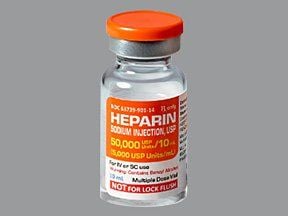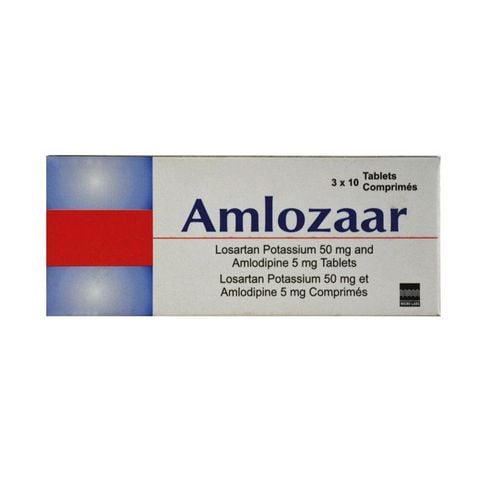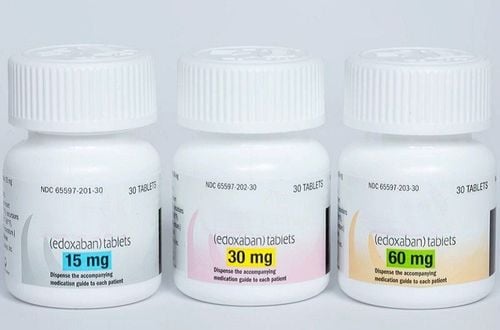This is an automatically translated article.
ATryn is approved by the U.S. Food and Drug Administration (FDA) for the prevention of perirenal thrombosis and perianal surgery in patients with hereditary antithrombin deficiency. So what exactly is ATryn? How to use it will be answered through the article below.
1. The effect of the drug ATryn
1.1. What is ATryn? The US Food and Drug Administration (FDA) has approved ATryn (Antithrombin [Recombinant]) for the prevention of perioperative and perioperative thromboembolic events in patients with hereditary antithrombin deficiency. but is not indicated for the treatment of thromboembolic events in patients with hereditary antithrombin deficiency.
ATryn is the first transgenic manufactured therapeutic protein and the first recombinant antithrombin approved in the US.
1.2. Effects of ATryn People with hereditary antithrombin deficiency are at increased risk for venous thromboembolic events, including pulmonary embolism and deep vein thrombosis, which can be life-threatening, particularly in situations high-risk situations. Antithrombin is a natural anticoagulant that plays an important role in controlling the formation of blood clots. Pure recombinant antithrombin has the same amino acid sequence as antithrombin derived from human plasma.
The safety and efficacy of ATryn have been established in clinical studies performed in patients with hereditary antithrombin deficiency with a history of thromboembolic events in the US, Europe, and Canada. In these studies, ATryn was shown to prevent the formation of clinically overt thromboembolic events. Post-marketing studies will be performed to evaluate safety and immunogenicity after repeated administration.
2. How to use the drug ATryn
For intravenous use only after reconstitution The dose of ATryn is individualized for each patient. The goal of treatment is to restore and maintain a functional level of Antithrombin (AT) between 80% and 120% (0.8 - 1.2 IU/mL) of normal. Administer the loading dose as a 15-minute intravenous infusion immediately followed by a continuous infusion of the maintenance dose. AT activity should be monitored for proper handling. Check AT activity once or twice daily and adjust dosage accordingly. Continue using ATryn until a full course of follow-up anticoagulation is available. ATryn enhances the anticoagulant effect of heparin and low molecular weight heparin.
The half-life of ATryn can be altered by concurrent treatment with anticoagulants using Antithrombin to promote their anticoagulant effect.
3. Contraindications of the drug ATryn
ATryn is contraindicated in patients with known hypersensitivity to goat milk proteins.4. Notes when using ATryn
Anaphylaxis and serious hypersensitivity reactions are possible. If symptoms occur, treatment with the product should be discontinued and urgent treatment recommended. The anticoagulant effect of drugs that use antithrombin for their anticoagulant effect may be altered when ATryn is added or withdrawn. To avoid excessive or insufficient anticoagulation, regularly perform coagulation tests appropriate to the anticoagulant used, at close intervals, especially during the first hours after initiation or withdrawal. ATryn and monitor patients for bleeding or thrombosis. Pregnancy category C: Studies in pregnant women have not shown that ATryn increases the risk of fetal abnormalities if taken during the third trimester of pregnancy. There are no data available for the use of ATryn during early pregnancy. Labor and delivery: ATryn is used in the treatment of perinatal women with hereditary antithrombin deficiency. Lactation: ATryn administered by infusion is present in breast milk in concentrations estimated at 1/50 to 1/100 of the blood concentration. Use only if clearly needed.
5. Side effects of the drug ATryn
The most common adverse reactions reported in clinical trials with frequency = 5% were bleeding and infusion site reactions.
Inform the patient that allergic-type hypersensitivity reactions are possible and instruct the patient to notify the physician of any past or present hypersensitivity to goat or goat milk protein before treatment with ATryn. Inform patients of early signs of hypersensitivity reactions including hives, chest tightness, wheezing, hypotension, and anaphylaxis and notify their healthcare provider immediately if these events develop.
Inform patients of the risk of bleeding when ATryn is used with other anticoagulants and instruct the patient to notify their physician of any bleeding events during treatment with ATryn .
6. How to store ATryn
Store at 2-8°C (36-46°F). Discard any unused portion.
Please dial HOTLINE for more information or register for an appointment HERE. Download MyVinmec app to make appointments faster and to manage your bookings easily.
Reference sources: atryn.com, holevn.org












